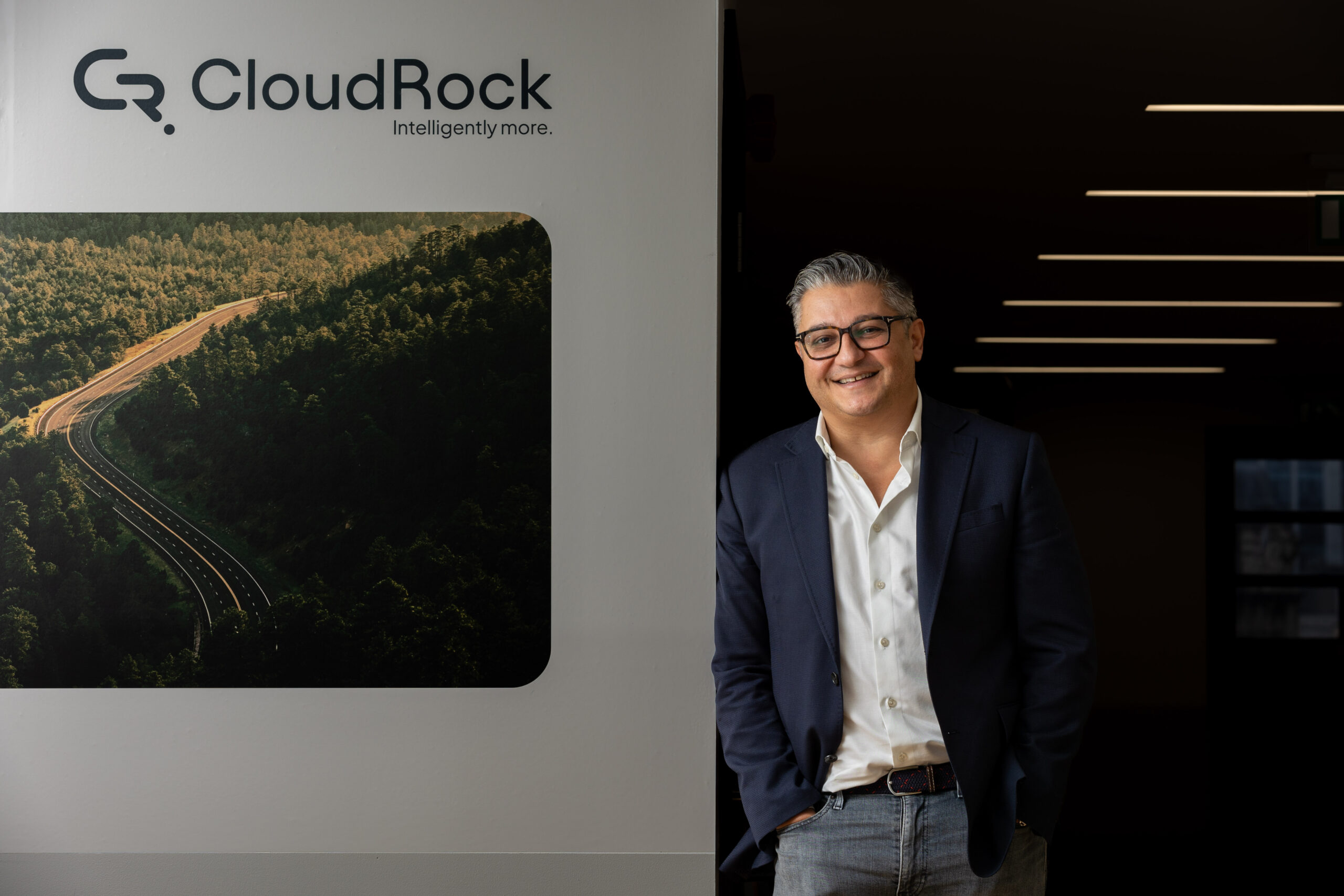ERP Today talks HCM today with CloudRock CEO Minos Ataliotis.
The times are a-changing, and CloudRock probably know this better than most of the consultancies out there.
Formed in 2016 by Minos Ataliotis, the HR and finance consultancy was arguably born amidst interesting times on both sides of the pond, from elections to referendums, to growing the business amid pandemics and protests. Those social narratives remain, but away from political and economical transformation, it’s hard not to notice the change on a day-to-day level in the workplace – look at human resources for the enterprise alone, which is currently seeing a skills shortage worldwide. Companies also have more of an onus nowadays to improve the employee experience, following the rise of hybrid work post-COVID.
Despite facing such turbulent events in its relative infancy, our interview with Ataliotis reveals that CloudRock has not been held back in becoming the “only and largest” global and independent advisory in the HR/finance transformation space.
The CEO is proud of how far his baby has come, and confident in its future. But hearing from Ataliotis, you can’t help thinking this success in one part is driven from the CEO’s own beginnings: Ataliotis hails from a seasoned HCM consulting background for the likes of PwC and IBM, before he decided to cut loose and set up his own advisory seven years ago.
“I’m a delivery person,” Ataliotis explains to ERP Today in CloudRock’s London HQ. “I started as a fresh-faced graduate on PwC’s graduate program […] and ended up in HR finance, digital transformation, heavily in the Oracle world working for large corporates, blue chip, financial services organizations, working on large-scale transformation.
“I don’t think there’s a role I haven’t done – anything from technical roles, function roles, to data, testing, project management, change management. It all gave me a really good grounding.”
From this experience, Ataliotis knew what he wanted to do with his own consultancy, and for him, CloudRock is a nice blend that suits his various strengths, and a cloud “reincarnation” of legacy ERP consultancies.
There are always curveballs and things always change.
He also remembers a level of “immaturity” in the market when founding the firm, noting CloudRock had to justify its position in the landscape: “On-premise technology was on the decline and there were more and more inquiries from our customers about helping them move to the cloud, technology strategy, running business cases and technology selections.
“We saw a huge demand in that, with around five projects signed in the space of a month, and it all took off from there.”
In the consultancy space, Ataliotis shares that, in his experience, there are always curveballs and things always change. This outlook has resulted in CloudRock becoming adept at providing solutions to customers no matter the weather, solutions including Workday, Oracle, SAP, ServiceNow and Dayforce.

HCM Today
Seated comfortably in the CloudRock London offices, the space seems a testament to Ataliotis’ and the company’s relaxed working culture, with a record player in one corner and decadent donuts up for grabs. Ataliotis himself is a personable interviewee, and although he clearly knows what he’s talking about, there’s no pretension or grandstanding in his answers. If anything, it’s disarming “human capital management” in action.
Getting down to the crux of the matter, ERP Today asks what HCM means now for the enterprise, alongside finance transformation. What Ataliotis sees is today’s volatility driving organizations to faster access to real-time data, which requires consolidated platforms and less integration between various sources.
Interestingly though, while current financial activity has led to less mergers and acquisitions activity in general, a large amount of CloudRock’s revenue comes from M&A.
“Customers are acquiring, they’re moving into other markets, they’re divesting,” he explains. “They have a lot of ambition in terms of inorganic growth, but you can’t do that if you’re […] working with two-tier or three-tier vendors as a large-scale global organization.”
As such, CloudRock is steeped in the tier-one brigade. Running through them with Ataliotis gives a nice summary of what transformation-hungry customers see in the top vendors. ServiceNow’s product, for one, has the power to transform workflow and drive operational efficiency and Ataliotis elaborates, “I don’t think the market has truly woken up to what it has there.”
Elsewhere, the founder also thinks the SAP end of ECC deadline will become another wake-up call for customers this year, and points to the market appeal of having both finance and workforce management in the one cloud of S/4HANA. Meanwhile, Workday and Oracle both offer a double-headed platform play for HR and finance which appeals to high-growth startups where “everything needs looking at.”
That’s not to forget Dayforce, as Ataliotis also reminds ERP Today of the strong HCM contender for retail manufacturing and hospitality, offering “very powerful solutions for large scale organizations.”
If you can expose more in terms of opportunities within that organization, then people have a voice.
The common thread in the market today is a resolve to improve upon the employee experience. Here, Ataliotis believes technology plays a big part in helping people feel valued and engaged with their careers, something not so easy when workers operate in silos.
“If you can expose more in terms of opportunities within that organization, then people have a voice. Even ourselves internally, we have an anonymous whistleblower functionality within our HCM system, so if anyone has a concern they can raise it anonymously; it could be discussed directly with HR. That never existed 20, 25 years ago, but now it’s pretty common and standard as something you need to offer your teams so they can feel engaged and supported.”
On the financial side, the CEO notes compliance is hotter than ever, citing one large-scale financial organization on CloudRock’s books. Operating in around 50 countries, the regulatory element of working in multiple jurisdictions for the client makes for a knotty challenge.
“Take the example of Brazil and e-invoicing,” he explains. “There might only be 12 employees in the entity, but we still need e-invoicing fully integrated with local authorities there. That’s a lot of hard work, so I think having the ability to say to our customers ‘simplify’ where the complexity sits and makes you special – that’s the area you really need to focus on.”
Changing with CloudRock
The case for customers today is simplifying and looking at what can come “out of the box”, as it were, for their enterprise, Ataliotis says. Here, CloudRock can help them keep an open mind and see how new solutions may work better than what they currently have, and explore how exactly they want to change as an operation.
It’s a missed opportunity if you don’t try and standardize as much as possible on that cloud tech.
“The change management piece is going to be massive, even if you just lift and shift your processes. So why not deal with it as a common change, moving to a new system and new processes, with more self-service, becoming more mobile?
“It’s a missed opportunity if you don’t try and standardize as much as possible on that cloud tech.”
Where CloudRock fits into the Business-as-Usual (BAU) support model is filling in the gaps when it comes to change, should a company not want a program manager on its books for a number of years, or an army of testers and integration folk at hand.
“You may not need the functional expertise in the technology that you are implementing,” Ataliotis explains. “These are all things that fall onto the customer regardless of which cloud tech that you go with for change management.
“If you’re going with a Big Four, tier one consultancy, they’ll do it, but if it’s a boutique, they generally wouldn’t. But we do a lot in that change management space.”
CloudRock is described by Ataliotis as a one-stop shop that takes away the headaches of hiring en masse for a transformation project.
“We feel we represent the customer to the SI […] Our people understand the methodology and the product.”
People person
CloudRock’s services are popular so far with media, retail, hospitality, sports management and financial services. These customers are served not just in London but on a global basis, with the firm having footprints in the US, India, Portugal and Australia. As its worldwide headcount tips 200 employees, CloudRock can claim to be the largest – and only – global and independent advisory in HR and finance transformation.
Ataliotis is especially proud of the Indian expansion, and talks with pride of CloudRock’s graduates from its Cultivate Academy in Mumbai, saying it’s the most “rewarding part of this whole job, giving those early career opportunities in their growth, seeing their development.”
These students get to be trained on a variety of platforms through a mix of technical data integrations, security skills and also testing skills. That diversity harks back to the CEO’s early days at PwC, recruited from a graduate fair and strapping himself in for the ride.
“I didn’t really know what I wanted to do, but ended up doing lots of different things,” he remembers.
Ataliotis grew up in North London and credits his comprehensive-based education for giving him street smarts. His father came to the UK from Cyprus, which meant a childhood growing up in expat Cypriot culture. ERP Today cheekily asks if that means he can relate to the recently popular sitcom Stath Lets Flats, which revolves around the British Cypriot community of North London.
Ataliotis laughs, saying he recognizes a lot in the show. But while the titular Stath may be a hilariously hapless sort when it comes to social skills, it’s clear Ataliotis suffers no such problems. He’s a real people person and understanding people is a good skill to have in the HCM game, helping to be a “rock” when clouds make for a stormier kind of weather indeed.




